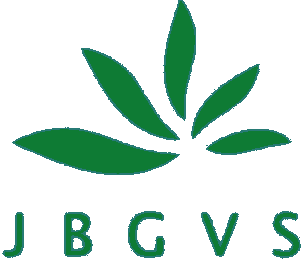Cause Area
Financials
-
2019
Total IncomeRs.531,969,659Total ExpensesRs.201,346,527Non Program ExpensesRs.5,211,725Program ExpensesRs.196,134,802Tip: Click on any value above to exclude it. -
2020
Total IncomeRs.560,559,184Total ExpensesRs.308,117,860Non Program ExpensesRs.6,532,030Program ExpensesRs.301,585,830Tip: Click on any value above to exclude it.
Geographies Served
Programs
-
Community Development Programme
District
Wardha
Aurangabad - Maharashtra
States
Maharashtra
The Jankidevi Bajaj Gram Vikas Sansthan (JBGVS) focuses on community development by nurturing local leadership in villages and empowering women through self-help groups. Its activities include promoting local culture, rural sports, and organising women's gatherings to raise awareness about social issues such as dowry, female foeticide, domestic violence, pollution, and environmental degradation. In urban areas, they conduct social development activities through Samaj Seva Kendra (SSK), which initially faced resistance but later became a centre for women and children to engage in various programmes. SSKs in Aurangabad and Wardha were established with the same philosophy, while rural development initiatives also extend to Sikar and Pantnagar, aligning with Bajaj Auto's plant locations and the legacy of Jamnalal ji Bajaj's dedication to uplift the underprivileged.
-
Environment Programme
District
Aurangabad - Maharashtra
States
Maharashtra
Rajasthan
Uttarakhand
Jankidevi Bajaj Gram Vikas Sansthan (JBGVS) is actively involved in natural resource management, recognizing the critical link between the environment and the livelihoods of vulnerable communities. It focuses on land use planning, water management, and biodiversity conservation. Given the alarming depletion of water resources in India, especially in regions like Marathwada, JBGVS launched the Bajaj Water Conservation Project (BWCP) in Maharashtra, Rajasthan, and Uttarakhand. This project, a flagship CSR initiative of the Bajaj Group, aims to empower local communities by promoting water-efficient practices and alternative livelihoods to reduce dependence on agriculture. In the first phase, 51 villages in Aurangabad district benefited, with contributions from both the Bajaj Group and local communities. The second phase expanded to 110 villages, demonstrating significant community involvement and project success.
-
Healthcare Programme
In the field of healthcare, Jankidevi Bajaj Gram Vikas Sansthan (JBGVS) is dedicated to improving the health of the community, considering them as their primary stakeholders. Their healthcare initiatives are aimed at strengthening the public health system by empowering communities. With around 150 partners and significant financial support, these projects generate multiple positive effects, aligning with the United Nations' Sustainable Development Goal 3 for good health and well-being. JBGVS focuses on community needs, promotes local partnerships, builds sustainable models, and draws from international expertise to strengthen local collaborations. Their healthcare efforts encompass creating and enhancing healthcare infrastructure, reducing malnourishment, infant and maternal mortality, offering specialized surgeries and treatment programs, and addressing communicable and non-communicable diseases, with a particular emphasis on mental health.
-
Livelihoods Programme
JBGVS addresses poverty and unemployment by empowering rural and urban poor households through multifaceted interventions. It focuses on capacity building, financial access, and community institution building, facilitating job placements and self-employment. The goal is for the underprivileged to control their livelihoods. JBGVS promotes sustainable non-farm sector livelihoods with three models: Individual Enterprise, Group Enterprise, and Skill Development. Its programmes prioritize career progression, mentoring, inclusion, and capacity building.
-
Education Programme
District
Pune
Dehradun
Aurangabad - Maharashtra
States
Maharashtra
Uttarakhand
JBGVS is dedicated to improving education in India through various initiatives and partnerships. It addresses issues like low learning outcomes, early childhood education, learning disabilities, and out-of-school programs. The BEI project enhances education quality by improving infrastructure and capacity-building. They partner with organisations like Gyanshala and Latika Roy Foundation to reach marginalized children and support those with special needs. Additionally, it runs various programmes, including night schools for migrant workers' children and holistic development initiatives for adolescents. Tara Mobile Creche caters to construction workers' children. JBGVS aims to create inclusive learning opportunities for all children, regardless of their circumstances.
Impact Metrics
-
General Health Checkup Camps
Year-wise Metrics- 2019-20 26
-
Awareness Camps for Livelihood
Year-wise Metrics- 2019-20 46
Registration Details
-
PAN Card
AAATJ0952E
-
Registration Number
F-4747(PUNE)
-
CSR Form 1
Not Available
-
FCRA
083930355
About
-
Headquarters
Pune, Maharashtra
-
Since
1987
Impact
JBGVS has brought positive change to rural communities through initiatives in water conservation, healthcare, education, livelihood support, and empowerment of village institutions.
Vision and Mission
JBGVS aims to act as a catalyst for all-round development of communities, making them into models of excellence for others to emulate, while seeking improvement in the quality of life of the people.
Political & Religious Declarations
-
Political Affiliation
-
Religious Affiliation
Location
-
Headquarters
Jankidevi Bajaj Gram Vikas Sanstha, Survey No. 4272, Near Tongaonkar Hospital, Vivek Nagar, Akurdi, Pune , India
Directions, Pune, Maharashtra -
Offices in Cities
Other Details
-
Type
Non-profit
-
Sub Type
Trust
Website
Technology Adoption
-
SOC 2 Compliant
No
-
Financial Management
-
Beneficiary Management

